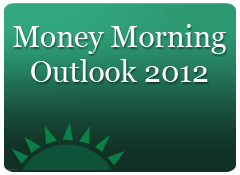The energy industry has a dangerous enemy that is getting stronger and more motivated to damage companies' operations and wreak havoc on global oil prices.
This new threat comes from the growing trend of cybercrime, and the criminals have become more focused on disrupting large industrial systems, like those operating in the energy industry.
Indeed, oil companies are reporting more frequent, better organized attacks on their systems. With most of the world's energy production and distribution controlled by computers, this puts the industry in an incredibly vulnerable position.
Executives say the repercussions of an attack that isn't stopped in time could be massively harmful.
"If anybody gets into the area where you can control opening and closing of valves, or release valves, you can imagine what happens," Ludolf Luehmann, IT manager at Royal Dutch Shell PLC (NYSE ADR: RDS.A, RDS.B), said at the World Petroleum Congress in Doha, Qatar. "It will cost lives and it will cost production, it will cost money, cause fires and cause loss of containment, environmental damage – huge, huge damage."
Crime Targets the Energy Industry
Cybercrime used to focus on hacking into systems to retrieve people's personal financial information. But now it's become more sophisticated and hackers more skilled, targeting more complex and protected systems to get highly classified information.
"The scene used to be dominated by speculative attacks – people being at the wrong place at the wrong time, but it was nothing personal," security researcher David Emm told BBC News. "But we certainly are in a different world than where we were 18 months ago. What we're starting to see is an increase in targeted attacks. We know critical systems, like those in oil production, are vulnerable to attack."
Shell's Luehmann told Reuters hackers are now unleashing attacks over longer periods of time, collecting more information than before to create more complex and resilient infections.
While other businesses can more easily shut down their information technology systems to update software security, the energy industry cannot simply turn off the oil and gas supply for long stretches of time. Any long disruption – from an attack or from trying to prevent one – wouldn't just affect one company, but the entire global oil market.
"Oil needs to keep on flowing," Riemer Brouwer, head of IT security at Abu Dhabi Co. for Onshore Oil Operations, told Reuters. "We have a very strategic position in the global oil and gas market. If they could bring down one of the big players in the oil and gas market you can imagine what this will do for the oil price – it would blow the market."

